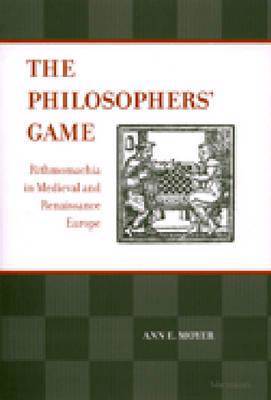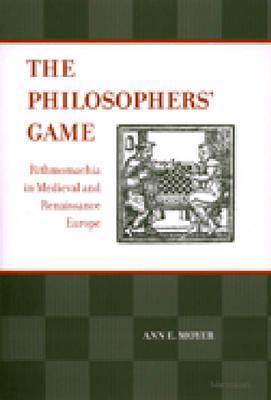
- Afhalen na 1 uur in een winkel met voorraad
- Gratis thuislevering in België vanaf € 30
- Ruim aanbod met 7 miljoen producten
- Afhalen na 1 uur in een winkel met voorraad
- Gratis thuislevering in België vanaf € 30
- Ruim aanbod met 7 miljoen producten
Zoeken
The Philosophers' Game
Rithmomachia in Medieval and Renaissance Europe with an Edition of Ralph Lever and William Fulke, the Most Noble, Auncient, and Learned Playe (1563)
Ann E Moyer
€ 122,45
+ 244 punten
Omschrijving
In The Philosophers' Game, Ann E. Moyer invites us to engage with the forgotten chess-like game Rithmomachia ("The Battle of Numbers"), which combined the pleasures of gaming with mathematical study and moral education. Intellectuals of the medieval and Renaissance periods who played this game were not only seeking to master the principles of Boethian mathematics but were striving to improve their own understanding of the secrets of the cosmos.
The Philosophers' Game, which includes a complete, illustrated Elizabethan rulebook, examines the nature and importance of the game's appeal as well as some of the reasons why it faded into obscurity. Rithmomachia enjoyed a last wave of popularity during the Renaissance before the early Scientific Revolution led to its disappearance. The demise of Rithmomachia forms part of the great transformation of fields of learning and the classification of knowledge that marked the final dissolution of the quadrivium among the traditional liberal arts.
The Philosophers' Game will interest anyone who studies the history of science, mathematics, or education in medieval and Renaissance Europe; the intellectual or cultural history of those eras; or the histories of games, sports, and leisure. It will also interest scholars interested in astrology and magic.
Ann E. Moyer is Assistant Professor of History, University of Pennsylvania.
The Philosophers' Game, which includes a complete, illustrated Elizabethan rulebook, examines the nature and importance of the game's appeal as well as some of the reasons why it faded into obscurity. Rithmomachia enjoyed a last wave of popularity during the Renaissance before the early Scientific Revolution led to its disappearance. The demise of Rithmomachia forms part of the great transformation of fields of learning and the classification of knowledge that marked the final dissolution of the quadrivium among the traditional liberal arts.
The Philosophers' Game will interest anyone who studies the history of science, mathematics, or education in medieval and Renaissance Europe; the intellectual or cultural history of those eras; or the histories of games, sports, and leisure. It will also interest scholars interested in astrology and magic.
Ann E. Moyer is Assistant Professor of History, University of Pennsylvania.
Specificaties
Betrokkenen
- Auteur(s):
- Uitgeverij:
Inhoud
- Aantal bladzijden:
- 216
- Taal:
- Engels
- Reeks:
Eigenschappen
- Productcode (EAN):
- 9780472112289
- Verschijningsdatum:
- 15/11/2001
- Uitvoering:
- Hardcover
- Formaat:
- Genaaid
- Afmetingen:
- 167 mm x 235 mm
- Gewicht:
- 498 g

Alleen bij Standaard Boekhandel
+ 244 punten op je klantenkaart van Standaard Boekhandel
Beoordelingen
We publiceren alleen reviews die voldoen aan de voorwaarden voor reviews. Bekijk onze voorwaarden voor reviews.











